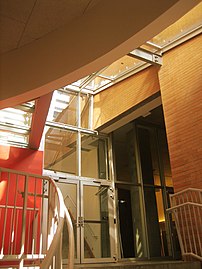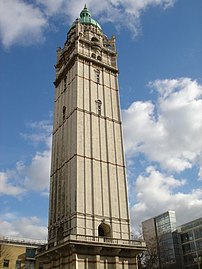 Amongst the other things that I do I am a fairly serious amateur musician. I sing regularly and irregularly in choirs, have occassionally done some solo vocal work, conduct a bit, and in the past written fairly substantial pieces of music for orchestra and choir. When I started university I made a choice between doing music or doing science. Like a lot of other scientists I suspect I chose to go down the science route because it is much easier to be an amateur musician than and amateur scientists. I don’t regret the decisions I made then but like anyone I do think back to what might have been.
Amongst the other things that I do I am a fairly serious amateur musician. I sing regularly and irregularly in choirs, have occassionally done some solo vocal work, conduct a bit, and in the past written fairly substantial pieces of music for orchestra and choir. When I started university I made a choice between doing music or doing science. Like a lot of other scientists I suspect I chose to go down the science route because it is much easier to be an amateur musician than and amateur scientists. I don’t regret the decisions I made then but like anyone I do think back to what might have been.
One of the criticisms of open practice in science and Open Notebook Science in particular is that we open up ourselves to harassment by ‘nutjobs’, ‘ignorant plebs’, and assorted other people who don’t appreciate a) how clever we are or b) how busy we are. There are two sides to this argument with merits on both. It is possible to get bogged down continually dealing with people who genuinely wish to explain to you how universal crystal harmonics explain the periodicity of the elements, or how their understanding of the interstitial spiritual lamina demonstrates the inadvisability of human cloning. There is no getting over the fact that there are nutters out there. On the other hand we do little to encourage the amateur scientist beyond allowing them occasional access to our hallowed existence through TV, NewScientist, and Wired. I wondered whether an exploration of the parallels between amateur music and amateur science might be interesting. I should note that I am using the term professional in rather a loose way here, not to mean whether someone that gets paid to do something, but someone who can devote the majority of their time to a specific pursuit, be that music, science, or anything else. Continue reading “The serious amateur and the cult of ignorance”



